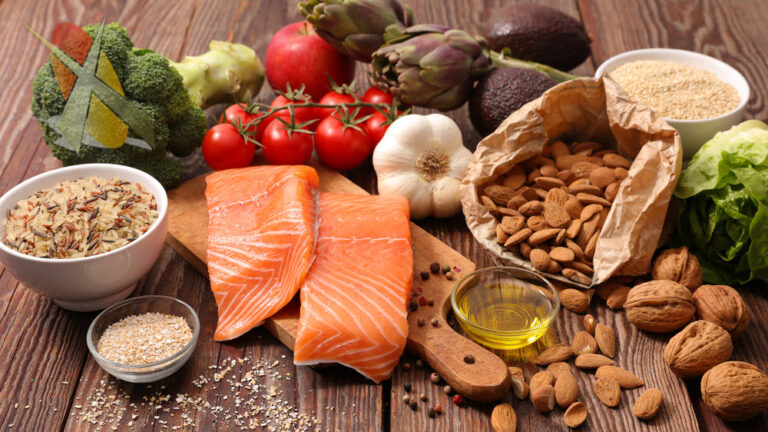Personal Development Success
In our never-ending quest for personal development, we often overlook the importance of proper nutrition.
While it may seem simplistic to attribute success solely to what we put into our bodies, the truth is that nutrition plays a vital role in our mental and physical wellbeing.
Eating a balanced and nourishing diet can bolster our energy levels, improve our cognitive function, and help us achieve our personal goals. This is not touting fad diets or recommending extreme fasting, but rather a holistic strategy to nutrition that supports our overall development.
In this blog post, we’ll explore the relationship between nutrition and personal development. From debunking common nutritional myths to understanding how to fuel our bodies for success, we aim to provide practical advice for those looking to reshape their nutritional habits.
We’ll also examine how the food we eat can impact our emotional wellbeing and affect our decision-making skills. Whether you are an entrepreneur looking to boost your productivity or a student seeking better concentration during exams, this post will offer valuable insights into how nutrition works.
Table of Contents Personal Development Success
The importance of nutrition in personal development
The role of nutrition in personal development is often underestimated. However, it is a fundamental aspect that should not be overlooked if we wish to achieve personal development success.
Proper nutrition is not only essential for maintaining physical health, but also for improving mental and emotional wellbeing.
When our bodies receive the necessary nutrients, our brains function optimally, allowing us to think clearly, make good decisions, and maintain strong emotional resilience.
Proper nutrition also strengthens the immune system, preventing illness and supporting longevity. It is therefore crucial to prioritize a balanced and healthy diet that ensures the intake of all necessary nutrients for personal development success.
Understanding the impact of nutrition on physical and mental wellbeing
In order to achieve personal development success, it is crucial to understand the impact of nutrition on both physical and mental wellbeing. Nutrition plays a pivotal role in maintaining a healthy lifestyle and preventing chronic diseases.
The food we consume acts as a fuel for our bodies and provides the necessary nutrients to improve and maintain optimal health. Not only does a balanced diet lead to a healthier body, but it also has a positive impact on mental wellbeing.
Studies show that nutrition is linked to improved cognitive function, reduced stress levels, and better mood regulation. Therefore, paying attention to what we eat can play a significant role in enhancing personal development and well-being.
Developing a thorough understanding of nutrition, and consistently making healthy food choices, can lead to long-term personal development success.
Incorporating a balanced diet for optimal health and productivity
Personal development success can be achieved through the incorporation of a balanced diet for optimal health and productivity.
Proper nutrition is essential for both physical and mental well-being, positively impacting our mood, energy levels, and ability to focus.
A balanced diet should consist of a variety of whole, unprocessed foods, including fruits, vegetables, whole grains, lean proteins, and healthy fats.
It is important to avoid fad diets or extreme restrictions, as they can lead to nutrient deficiencies and other health issues.
Instead, aim for a sustainable and enjoyable approach to eating that includes all food groups in appropriate portions.
Consistently fueling our bodies with nutritious foods allows us to perform at our best both personally and professionally, aiding in achieving personal development success.
Avoiding processed foods and high sugar intake
One key element of achieving personal development success through nutrition is avoiding processed foods and high sugar intake.
Processed foods are typically high in calories but low in nutrients, and they tend to be packed with unhealthy additives, such as preservatives and artificial flavors.
In addition, many processed foods contain high amounts of refined sugars, which are linked to numerous health problems like obesity, type 2 diabetes, and heart disease.
To minimize intake of these harmful substances, it’s best to avoid pre-packaged and fast foods, and instead focus on incorporating whole, natural foods into your diet, such as fruits, vegetables, lean meats, and whole grains.
By making these dietary changes, you’ll not only improve your physical health, but also your mental and emotional wellbeing.
Incorporating nutrient-dense foods to support brain function and memory
Incorporating nutrient-dense foods is a crucial element in improving brain function and memory. The brain is an organ that requires adequate nourishment to perform at its optimal level.
Nutrient-rich foods like berries, fatty fish, nuts, and whole grains contain vitamins, minerals, and antioxidants that support healthy brain function.
For example, omega-3 fatty acids found in fatty fish like salmon are essential for brain development and cognitive function.
Berries, on the other hand, are rich in flavonoids, compounds that improve communication between brain cells, leading to improved memory and cognitive performance.
Almonds, walnuts, and seeds are excellent sources of vitamin E, which is vital in protecting brain cells from harmful oxidative stress.
By incorporating these nutrient-dense foods into your daily diet, you not only support brain function and memory but also promote overall health and well-being.
Eating regular, balanced meals to maintain energy levels throughout the day
Eating regular, balanced meals throughout the day is a cornerstone of healthy nutrition and a key strategy for personal development success.
Consistent, balanced meals help to regulate blood sugar levels, avoiding the energy highs and lows that can lead to fatigue or poor concentration.
Moreover, skipping meals can actually result in overeating or binge eating later on, which can lead to weight gain and other health problems.
To get the best results, it’s important to plan out meals in advance to ensure that they provide a mix of complex carbohydrates, protein, and healthy fats, which can help sustain energy levels, support cognitive function, and promote overall health and wellness.
Additionally, it’s important to stay mindful and attentive to the body’s hunger and fullness signals, and to avoid unhealthy snacking or overeating beyond what the body needs.
By sticking to regular, balanced meals, personal development success through nutrition is attainable for anyone seeking to achieve better physical and mental health.
Ensuring adequate hydration to support cognitive function and digestion
Ensuring adequate hydration is an essential component of maintaining optimal cognitive function and digestive health.
Dehydration can lead to mental fatigue, decreased alertness, and impaired memory, while also hindering the body’s natural digestive processes.
To avoid these negative effects, it is recommended that individuals drink at least eight 8-ounce glasses of water per day, in addition to consuming water-rich fruits and vegetables.
Proper hydration also supports the body’s ability to regulate temperature, transport nutrients, and lubricate joints.
For those engaging in physical activity or living in hot climates, maintaining adequate hydration levels becomes even more crucial.
Along with water, sports drinks and electrolyte-rich beverages can also aid in replenishing fluids and essential nutrients lost through sweat.
Incorporating hydration practices into daily routines is simple and effective for promoting optimal physical and cognitive function.
Making an effort to drink water regularly, prioritizing water-rich meals, and having accessible and convenient sources of fluids can go a long way in supporting personal development success through improved nutrition.
Using food to manage stress and anxiety
In the pursuit of personal development success, the role of nutrition in managing stress and anxiety cannot be overlooked.
Food has the ability to affect our mood and emotions, which is why it is crucial to incorporate foods that promote calm and relaxation in our diet.
One way to do this is to focus on complex carbohydrates such as whole grain bread, brown rice, and oatmeal, which promote the release of serotonin, a hormone that helps regulate mood.
Foods rich in magnesium like spinach, almonds, and avocado can also play a significant role in managing anxiety by calming the central nervous system.
In addition, incorporating tea and herbal infusions like chamomile and lavender can also help calm the mind and promote relaxation.
By using food to manage stress and anxiety, we can improve our overall sense of well-being and work towards personal development success.
The role of mindfulness in healthy eating habits
In our journey towards personal development success through nutrition, it is important to consider the role of mindfulness in establishing healthy eating habits.
Mindfulness involves being present and fully engaged in the moment, and in the context of eating, it means paying attention to the sensations and experiences of eating.
This approach can help us recognize the difference between emotional eating and true hunger, and can help us make more conscious and intentional choices about what we consume.
Additionally, practicing mindfulness can help us establish a healthier relationship with food and our bodies, as it encourages self-awareness and self-compassion.
Incorporating mindfulness techniques into our daily eating habits can lead to a more positive and balanced approach to nutrition and contribute to our overall personal growth and development.
Staying committed to long-term healthy eating habits for personal development success.
Personal Development Success Through Nutrition
One of the keys to personal development success is staying committed to long-term healthy eating habits.
Proper nutrition can have a significant impact on our physical, mental, and emotional well-being, influencing our ability to achieve our goals and reach our full potential.
To maintain a healthy diet, it’s essential to include a variety of nutrient-dense foods, such as fruits, vegetables, whole grains, lean protein, and healthy fats.
In addition, it is important to limit highly processed and sugary foods, which can lead to inflammation and chronic health conditions.
While developing healthy eating habits can be a challenging process, it is critical to stay committed and consistent in your approach.
Over time, these habits will become second nature, leading to long-term health and personal development success.
In conclusion, the importance of nutrition in our personal development journeys can never be overemphasized. It is the foundation upon which our physical, emotional, and mental wellbeing rests.
By making conscious and healthy food choices, we give our bodies the nourishment they need to function optimally.
This, in turn, boosts our confidence, enhances our cognitive abilities, and fuels our drive for success. Therefore, a healthy diet is not just a personal choice; it is a necessary step towards achieving overall success in life.



